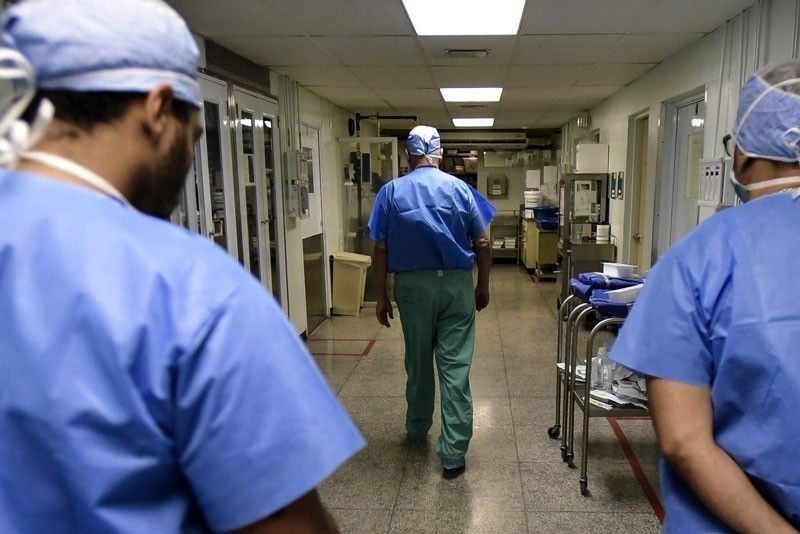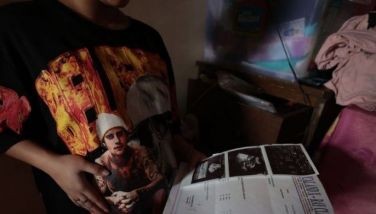Supreme Court junks petition vs Anti-Hospital Deposit Law

MANILA, Philippines — The Supreme Court (SC) has junked the petition of an organization of private hospitals and clinics against the law giving more teeth to the Anti-Hospital Deposit Law.
In a 21-page decision released last Dec. 18, the high court dismissed the petition filed last year by Private Hospitals Association of the Philippines Inc. (PHAPi) seeking to strike down Republic Act No. 10932 (Act Strengthening the Anti-Hospital Deposit Law), which increased the penalties against hospitals and medical clinics that refuse to administer appropriate initial treatment and support in emergency or serious cases.
The court rejected the petition based on technicality, particularly the lack of legal standing of PHAPi to file the petition.
But the SC did not rule on the constitutionality of the assailed law, only saying that it “enjoys the presumption of constitutionality which the Court, at the first instance, cannot disturb in the absence of a prima facie showing of grave abuse of discretion and, upon delving into the merits, in the absence of a clearest showing that there was indeed an infraction of the Constitution.”
The high tribunal held that PHAPi has no right to question RA 10932 because it has no substantial interest and does not stand to suffer direct injury from the assailed law.
“Assuming a hospital is found liable for violating the provisions of RA 10932, the liability or direct injury inures not to the petitioner association itself but to the member-hospital,” read the ruling penned by Associate Justice Noel Tijam.
“In the absence of an actual and direct injury, any pronouncement by the Court would be purely advisory or sheer legal opinion, in view of the mere hypothetical scenarios which the instant petition presents,” it stressed.
The court further explained that while PHAPi is the sole national organization of purely privately owned clinics, hospitals or other health facilities in the country, it “failed to demonstrate that ample authority had been extended to it by its members to file the instant petition.”
Agreeing with the position of the solicitor general, the SC also ruled that petitioners failed to demonstrate existence of actual legal controversy to warrant review of the constitutionality of RA 10932.
“The allegations set forth in the petition failed to meet the requirement of a prima facie showing of grave abuse of discretion on the part of Congress relative to the provisions of RA No. 10932. While RA 10932 and its implementing rules are accomplished acts of a co-equal branch of the government, the petition is unfortunately bereft of any allegation that petitioner, nor any of its members, had thereby suffered an actual or direct injury as a result of a discretion gravely abused,” it pointed out.
“If the Court were to invalidate the questioned law on the basis of conjectures and suppositions, then it would be unduly treading questions of policy and wisdom not only of the legislature that passed it, but also of the executive which approved it,” the Court added.
RA 10932 was signed into law by President Duterte on Aug. 3, 2017. The Department of Health issued Administrative Order No. 2018-0012 last April for its implementation.
Aside from banning the request, solicitation, demand or acceptance of deposit and advance payment by private hospitals and clinics, RA 10932 also expanded the scope of “basic emergency care” to include “medical procedures and treatment administered to a woman in active labor.”
The law mandates the local government unit where the hospital or medical clinic is located “to allow free use of its emergency medical vehicle” in case a transfer to another hospital of a patient is deemed appropriate.
It imposes on violators – hospital owners, medical practitioners, employees – “the penalty of imprisonment of not less than six months and one day but not more than two years and four months, or a fine of not less than Pl00,000 but not more than P300,000 or both at the court’s discretion.”
When a violation is made pursuant to an established hospital policy or upon instructions of its management, the penalties are increased as against the director or officer formulating and implementing such policy to four to six years, or a fine of not less than P500,000 but not more than P1 million, or both, without prejudice to an award for damages.
The law also introduced “the three-strike rule, or when upon three repeated violations committed pursuant to an established policy or upon instruction of the management, the health facility’s license to operate shall be revoked by the (DOH).”
It holds “the president, chairman, board of directors, or trustees and other officers of the health facility solidarily liable for damages.”
At the same time, RA 10932 “presumes liability against the hospital, medical clinic, and the official, medical practitioner, or employee involved, in the event of death, permanent disability, serious impairment or permanent injury to or loss of an unborn child, proceeding from the denial of admission to a health facility pursuant to a policy of requiring deposits or advance payments for confinement or treatment.”
This law amended Batas Pambansa Blg. 702 of 1984, which criminalized only the demand for deposit or advance payment for confinement or treatment in hospitals and medical clinics. It penalized erring hospital or medical clinic director, manager or any other officer “with a fine of not less than P1,000 but not more than P2,000 or imprisonment for not less than 15 days but not more than 30 days, or both.”
Petitioners argued that the law’s presumption of liability clause under Section 5 violates their constitutional presumption of innocence, and “essentially reverses the presumption of innocence.”
Petitioners also slammed Section 7 of the law, which directs the Philippine Health Insurance Corp. to reimburse the cost of basic emergency care given to “poor and indigent patients,” and the Philippine Charity Sweepstakes Office (PCSO) to provide medical assistance to the same, for being violative of the equal protection clause; and Section 8, which grants tax deductions to hospitals and medical clinics that incur other expenses surrounding emergency care to “poor and indigent patients” which are not reimbursed by PhilHealth.
They alleged that these provisions amount to involuntary servitude.
The group had also warned that the cost of health care will skyrocket as doctors at the emergency departments “would be compelled” to admit patients even if they are not convinced that the patients’ conditions require admission.
- Latest
- Trending































